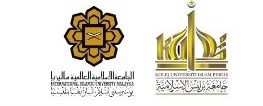The concept of “Qiwamah” is deeply rooted in Islamic teachings and plays a significant role in shaping the dynamics of the family institution. Qiwamah refers to the principle of male guardianship, stewardship, trusteeship and responsibility within the family unit, where men are empowered and entrusted with the role of being providers, protectors, and maintainers of their families. This principle is derived from various Quranic verses and Hadiths that emphasize the distinct roles and responsibilities of men and women within the family.
Qiwamah originated in early Islamic society to maintain order and harmony in families and society. The foundation of Qiwamah can be traced back to the Quran, particularly in Surah an-Nisa which addresses the rights and duties of men and women. Verse 34 of Surah an-Nisa outlines the responsibilities of men as caretakers and protectors, and it has been interpreted to underline their role as leaders within the family.
Qiwamah benefits families and society. It ensures financial stability by making men responsible for supporting the family, reducing money worries. Men’s nurturing role as protectors strengthens family resilience and well-being. Giving men decision-making authority helps prevent conflicts, leading to efficient problem-solving and a harmonious atmosphere. Qiwamah also promotes unity and social cohesion within society. Recognizing each family member’s role fosters collective understanding and harmony. Overall, Qiwamah positively impacts families and contributes to stability and cohesion in society.
Critics of Qiwamah argue that it perpetuates gender inequality by rigidly assigning fixed roles to men and women, with men assumed to have authority or power over women. However, proponents of the concept contend that Qiwamah is not meant to promote dominance but rather emphasizes fulfilling specific responsibilities in a complementary manner, recognizing the importance of different but equally significant roles for both men and women within the family. In today’s diverse and rapidly changing world, understanding and implementing Qiwamah in family dynamics present significant challenges and implications. The intricate nature of Qiwamah necessitates a comprehensive examination to grasp its impact on family structures, gender roles, and the pursuit of sustainable and harmonious familial relationships within the broader societal context.
Therefore, by critically analyzing the concept of Qiwamah, the seminar aims to foster a deeper understanding of its various interpretations and implications in contemporary society. Moreover, the seminar will create an opportunity to address misconceptions about Qiwamah and highlight its intended purpose of promoting cooperation and harmony within the family. By showcasing real-life examples of successful implementations of Qiwamah that prioritize mutual respect and support between spouses, the seminar will seek to dispel any misperceptions and emphasize the importance of balanced gender roles. This seminar will provide valuable insights not only for policymakers, practitioners, and professionals but also for the broader society. The knowledge gained from the seminar will equip these stakeholders with a better understanding of Qiwamah’s impact on family dynamics, gender roles, and social dynamics. Furthermore, it aims to address the challenges and obstacles faced in implementing the ideal concept of Qiwamah in contemporary society. By exploring various factors that can strain family relationships, such as communication issues, gender
inequality, societal pressures, and economic difficulties, the seminar will discuss practical strategies to overcome these challenges and create an environment where Qiwamah can flourish.
In conclusion, the National Seminar on “Qiwamah in the Family Institution for Sustainability Community” will delve into the Islamic concept of Qiwamah and its practical application in modern society. By exploring the rights, responsibilities, and challenges associated with Qiwamah, the seminar aims to provide insights and guidance for individuals, families, and communities to promote a sustainable and prosperous family life based on Islamic principles. The ultimate goal is to create an environment where families thrive and find unity, well-being, and social harmony through a balanced understanding and application of Qiwamah in the context of contemporary challenges and opportunities.
Webinar Theme
“Upholding Qiwamah (Leadership) in Family Institution: Towards Developing Sustainable and Sejahtera Society”
Objectives
|
